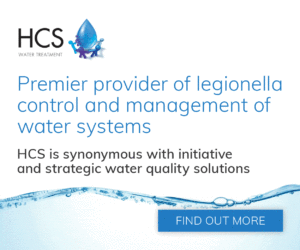Waste management service provider Veolia has announced it passed the milestone of 2GW of flexible electrical power managed, equivalent to the output of two nuclear reactors or the consumption of 2m people.
This success builds on a portfolio of almost 10,000 sites managed across Europe and a variety of industrial customers (VPK, Thy Marcinelle, Beneo Orafti, Aquiris, Veolia Eau, Orange, Inovyn Ineos, etc). To help meet the challenges of the energy crisis and the integration of intermittent power supply from renewable energies, the company’s ambition is to accelerate the pace and reach 3GW of flexible power by 2030.
Electrical flexibility becomes increasingly important for ensuring a reliable and sustainable power supply in the context of the energy crisis in Europe and evolving electrical mix, with a growing share of renewable energies and the consequent need to manage variability and intermittency. It helps to modulate electricity production or consumption in real time to maintain the balance between supply and demand and can come from a variety of sources, such as energy storage devices, flexible power plants and demand-side management devices.
The electrical flexibility market is driven by very fast addition of intermittent solar and wind capacity to the grid, creating a large and long term need for grid balancing between supply and demand.
According to the International Energy Agency (IEA), by 2030, there will be a tenfold increase in the need for flexible assets worldwide, due to growth in Europe (over 500GW PV & wind). Under current market and policy conditions, the IEA estimates that the world’s renewable electricity generation capacity will increase 2.5-fold by 2030.
In addition to its contribution to grid stability, it represents an economic opportunity for businesses, which are remunerated for adjusting their consumption during peak periods. This promotes a smart, mutually beneficial energy transition, offering stability to the grid and economic opportunities to businesses.
The company said it is positioned as a European technology leader in flexible process modeling and IoT with a dedicated R&D team. It operates through intelligent algorithms, developed on a high-performance digital platform, to manage and optimize diffuse load shedding, ie the ability to coordinate several thousand sites that shed electricity over a given period, in response to alerts from the grid operator.
The group’s subsidiary, Flexcity integrates the operating constraints of industrial sites into its algorithms via a “Flexcity box” installed on site, which receives production or consumption data from flexible installations and transmits activation signals using industrial or IoT protocols. This information enables automatic activation with the least possible impact on its customers’ operations.
Chief executive officer Estelle Brachlianoff said: “Intelligent energy management is an essential pillar in the ecological transformation of our energy systems. With electrical flexibility, the challenge of energy reduction transforms into both an ecological and economic opportunity. At Veolia, we consider electrical flexibility a resilient solution for a smart energy transition within territories. Sustainable energy management stands tall as a pivotal pillar in the ecological transformation of our energy systems. Leveraging Veolia’s industrial expertise, we are empowered to deliver efficient solutions to strengthen the resilience of our customer’s power systems.”






















































































